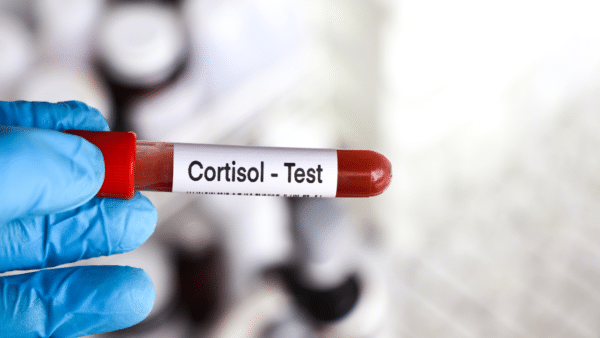Cortisol, commonly known as the stress hormone, plays an important role in your body’s response to stress. It affects various bodily functions, including metabolism, immune response, and recovery from illness and injury. Given its importance, the cortisol test becomes a pivotal diagnostic tool for assessing the adrenal gland’s performance and identifying potential health issues. This article delves into the specifics of the cortisol test, including its purpose, procedure, and interpretation of results, offering reassurance and a path to understanding for those experiencing symptoms.
What Is a Cortisol Test?
The cortisol test is a medical examination that measures the cortisol hormone in your blood, urine, or saliva. It’s primarily used to diagnose conditions associated with abnormal cortisol levels. These include Addison’s disease, a disorder where the adrenal glands don’t produce enough cortisol. Cushing’s syndrome, a condition characterized by high cortisol levels; and adrenal insufficiency, a condition where the adrenal glands don’t produce enough hormones.

Types of Cortisol Tests
There are three main types of cortisol tests, each serving different diagnostic purposes:
| Test Type | Description | Time of Day |
|---|---|---|
| Blood Cortisol Test | This test measures the cortisol present in your blood. It is often conducted in the morning when cortisol levels are at their peak. | Morning |
| Salivary Cortisol Test | Conducted at night, it assesses the cortisol level in your saliva, offering insights into your body’s circadian rhythm and how it impacts cortisol production. | Night |
| 24-Hour Urinary Cortisol Test | This test requires a 24-hour urine collection to measure cortisol levels, providing a comprehensive view of the adrenal gland’s activity over an entire day. | Throughout the day |

Symptoms and Cortisol Test
Doctors may recommend a cortisol test if you exhibit symptoms indicative of either too high or too low cortisol levels, such as:
- Unexplained weight gain or weight loss
- Muscle weakness
- Fatigue
- High blood pressure
- Skin changes, such as bruises and purple stretch marks
- Mood swings, which include depression or anxiety

Preparing for the Cortisol Test
Preparation for the cortisol test varies based on the type of test being performed. Generally, it involves:
- Fasting: You may be asked to fast for a specific period before the test.
- Medication: Inform your doctor about any medications you’re taking, as some can influence cortisol levels.
- Time of Day: Since cortisol levels fluctuate throughout the day, your doctor will advise on the best time to conduct the test.
Types of Cortisol Blood Tests
Cortisol blood tests play a crucial role in diagnosing and monitoring conditions related to the adrenal gland and hormonal imbalances. Below is a comprehensive list of available cortisol-related tests, each designed to provide insights into specific aspects of adrenal and endocrine health.
| Test Name | Description |
|---|---|
| Cortisol Blood Test Random | This Cortisol Blood Test detects excess or deficient cortisol production. |
| Cortisol Blood Test, AM | The Cortisol Blood Test, AM measures cortisol levels in a morning blood sample to help screen for health conditions that affect the adrenal glands. |
| Cortisol Blood Test, PM | A PM cortisol serum test detects deficient or excess cortisol production. |
| Cortisol Urine Test, 24-Hour | The Cortisol Urine Test, Urinary Free, 24-Hour, measures cortisol levels in the urine over 24 hours to help screen for adrenal gland disorders. |
| Cortisol Blood Test, LCMS | The Cortisol Blood Test, LC-MS, measures cortisol levels in the blood to help screen for conditions related to adrenal gland disorders. |
| Cortisol: Cortisone Ratio Profile Blood Tests, LC/MS-MS | A Cortisol:Cortisone Ratio Profile Blood Test is useful for investigating suspected Cushing syndrome (hypercortisolism), assisting in diagnosing acquired or inherited abnormalities of 11-beta-hydroxy steroid dehydrogenase (cortisol to cortisone ratio), and diagnosis of pseudo-hyperaldosteronism due to excessive licorice consumption. |

Understanding Your Cortisol Test Results
Cortisol test results require careful interpretation by a healthcare professional who is trained to understand the nuances and implications of these results. Typical ranges vary depending on the lab performing the test, the time of day, and the type of test conducted. Generally, higher or lower than normal levels can indicate the presence of health conditions affecting cortisol production. This emphasis on professional interpretation should instill confidence in the medical process.
- High Cortisol Levels may suggest Cushing’s syndrome, stress, obesity, or recent surgery.
- Low Cortisol Levels might indicate Addison’s disease, adrenal insufficiency, or pituitary gland issues.

The Importance of Cortisol Regulation
Cortisol is vital in managing stress, regulating metabolism, and supporting the body’s circadian rhythm. Abnormal levels can disrupt these processes, leading to various health issues. Understanding and monitoring cortisol levels through the cortisol test can aid in the early detection and management of these conditions.
| Test Type | Description | Usage |
|---|---|---|
| Blood Cortisol Test | Measures cortisol in the blood | Used to diagnose conditions like Cushing’s syndrome and Addison’s disease |
| Salivary Cortisol Test | Assesses cortisol in saliva | Indicates circadian rhythm impact on cortisol |
| 24-Hour Urinary Cortisol Test | Measures cortisol in urine over 24 hours | Provides comprehensive adrenal activity overview |
This table provides a structured overview of the different types of cortisol tests, along with their descriptions and primary uses.
Conclusion
The cortisol test is an essential diagnostic tool that helps identify disorders related to abnormal cortisol levels. By understanding the purpose, procedure, and interpretation of cortisol test results, individuals can better navigate their health journey in consultation with their healthcare provider. Monitoring and maintaining balanced cortisol levels is critical to ensuring overall well-being and effectively managing stress and related health conditions. This proactive approach to health empowers individuals to take control of their well-being.

